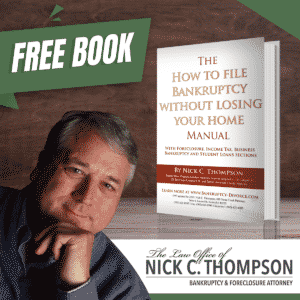Imagine going to work and finding your paycheck short. Or, heading to the bank to find your account empty. All too often we hear, “How can they take money from my bank account when I was never served with a lawsuit?” Interestingly, in Kentucky, default judgments can happen without notice in two different ways. In this article, you will learn how this happens in Kentucky and what you can do about it.
 Learning About and Defending Against Kentucky Default Judgments
Learning About and Defending Against Kentucky Default Judgments
⎆ Certain creditors can attach wages without a judgment.
Student loans, income taxes, and certain other debts can attach your wages, bank accounts, and property without filing a lawsuit. Most of these debts which can attach assets without a judgment are with the government. They do have to send notice to your last known address but, you might no longer be at that address.
So, no court order exists and no lawsuit ever files. Rather, the government directly attaches assets with these debts. However, you have the opportunity to object to the attachment. But again, if you move from a prior address you might not get the warning in the mail, so that makes it difficult to object.
⎆ Default judgments based on a warning order attorney.
When a creditor cannot easily serve you or doesn’t know your address he uses a warning order attorney. This is when the court hires an attorney to use his best efforts to locate you. The warning attorney reports to the court that he cannot find you and that he knows of no defenses to the action. Then a default judgment enters in state court.
Since you didn’t get the contact from the warning order attorney, you might not know about the judgment for years. Judgments are good for 20 years and are continuously renewable. This means the debt is good for a lifetime. Then, the only way to get rid of it is to file bankruptcy or pay it.
⎆ Debt collection and default judgments.
Debt collection attorneys live and depend on default judgments. They depend on doing as little work as possible to get the judgment. Then they search for assets to attach. It is possible to set aside a default judgment, but it is difficult, and you then have to attempt to get the property back.
Default judgments make taking your property as fast, easy, and low cost as it can possibly be. If you are served and you fail to answer a complaint, they simply file a motion for default judgment and the appropriate AOC form.
Some people really are unaware they have been served. Notice of the lawsuit can be by mail, sheriff, or by warning order attorney. Debt collectors can file a motion to obtain a default judgment within 30-days after you were served.
The judge normally allows 30-days for you to respond to the motion for default and then grants it. Many sources believe about 90% of debt collection lawsuits are won by default or summary judgments.
⎆ Summary and default judgments.
Summary judgments are like default judgments. Default judgments mean no answer files. Summary judgment motions file because there is no issue in dispute and the judge decides the case early.
Once a judgment is entered collection is simple. The creditor merely executes and sells the property. This can include your home, car, wages, bank accounts, and even furniture. Discovery can even require a person to appear and testify about his assets.
Default judgments can be vacated by attacking the service as being invalid or by finding other errors in the case. Judges do not like default judgments, but default judgments are just as valid as judgments from a trial of the facts. If you have a reasonable basis for vacating the judgment the judge will set it aside.
You will still need to defend the case by filing an answer, issuing discovery, and fighting back. Often filing bankruptcy is less costly. However, an attorney with the right experience can defend the case or negotiate a settlement.
 Resources for Bankruptcy
Resources for Bankruptcy
Louisville Kentucky Bankruptcy Forms
Kentucky Foreclosure Law Process
Kentucky Default Summary and Agreed Judgment
How to Stop Federal Student Loan Wage Garnishment
Contact us to see what defenses you have or to negotiate with the debt collector. Nick C. Thompson, Bankruptcy Lawyer: 502-625-0905.

 Learning About and Defending Against Kentucky Default Judgments
Learning About and Defending Against Kentucky Default Judgments

